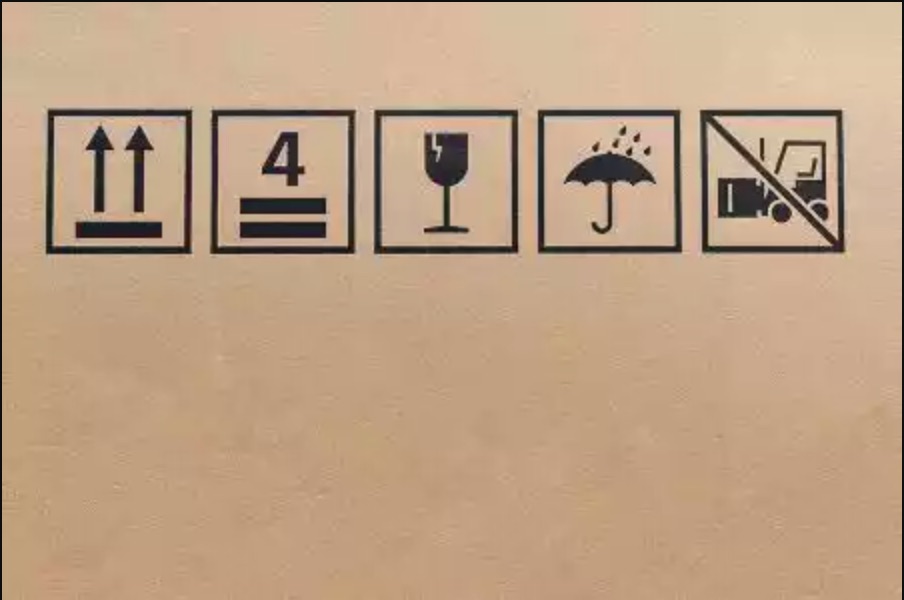*
Nếu bạn không đến, tôi sẽ chia tay với bạn.
If you do not come, I am going to break up with you.
Wenn Du nicht kommst, verlasse ich dich.
Si no vienes, voy a romper contigo.
Si tu ne viens pas, je vais rompre avec toi.
Se non vieni, ti lascerò.
ถ้าคุณไม่มา ฉันจะเลิกกับคุณ
안 오면 헤어지겠다.
要是你不來,我就跟你分手。
要是 你 不来 , 我 就 跟 你 分手 。 *
Hôm nay bữa sáng là bánh mì nướng.
Today's breakfast is toast.
Das heutige Frühstück ist ein Toast.
Hoy el desayuno es una tostada.
Aujourd'hui, le petit-déjeuner est composé de toasts.
Oggi la colazione è pane tostato.
วันนี้มีอาหารเช้าเป็นขนมปังปิ้ง
오늘의 아침은 토스트입니다.
今天的早餐是烤麵包。
今天 的 早餐 是 烤面包 。 *
Cô ấy đang ăn sáng của mình.
She is eating her breakfast.
Sie frühstückt gerade.
Está desayunando.
Elle prend son petit-déjeuner.
Sta facendo colazione.
เธอกำลังกินข้าวเช้า
그녀는 아침을 먹고 있다.
她在吃早餐。
她 在 吃 早餐 。 *
Thử nghiệm đã tạo ra một bước đột phá.
The experiment has made a breakthrough.
Das Experiment hat einen Durchbruch geschafft.
El experimento ha supuesto un gran avance.
L'expérience a fait une percée.
L'esperimento ha fatto una svolta.
การทดลองทำให้เกิดความก้าวหน้า
실험은 돌파구를 마련했습니다.
實驗取得了突破。
实验 取得 了 突破 。 *
Tôi đã có một bữa sáng lớn.
I had a huge breakfast.
Ich hatte ein riesiges Frühstück.
He desayunado mucho.
J'ai pris un énorme petit-déjeuner.
Ho fatto una colazione abbondante.
ฉันทานอาหารเช้ามื้อใหญ่
나는 훌륭한 아침 식사를 했다.
我吃了一頓豐盛的早餐。
我 吃 了 一顿 丰盛 的 早餐 。 *
Tôi thích ăn ngũ cốc vào bữa sáng.
I like eating cereal for breakfast.
Ich esse gerne Müsli zum Frühstück.
Me gusta desayunar cereales.
J'aime manger des céréales au petit déjeuner.
Mi piace mangiare i cereali a colazione.
ฉันชอบกินซีเรียลเป็นอาหารเช้า
저는 아침으로 시리얼을 좋아합니다.
早餐我喜歡吃麥片。
早餐 我 喜欢 吃 麦片 。 *
Tôi đang ăn sáng .
I am eating my breakfast.
Ich esse mein Frühstück.
Estoy desayunando.
Je prends mon petit-déjeuner.
Sto facendo colazione.
ฉันกำลังกินข้าวเช้า
나는 아침을 먹고 있다.
我在吃早餐。
我 在 吃 早餐 。 *
Có một sự cố cơ học.
There is been a mechanical breakdown.
Es liegt ein mechanischer Defekt vor.
Ha habido una avería mecánica.
Il y a eu une panne mécanique.
C'è stato un guasto meccanico.
มีการพังทลายทางกล
기계가 고장났습니다.
機械出故障了。
机械 出 故障 了 。 *
Họ không thể thoát khỏi sợi dây.
They can not break loose of the rope.
Sie können sich nicht von dem Seil befreien.
No pueden soltarse de la cuerda.
Ils n'arrivent pas à se détacher de la corde.
Non possono staccarsi dalla corda.
พวกเขาไม่สามารถหลุดจากเชือกได้
그들은 밧줄을 제거할 수 없습니다.
他們掙脫不開繩子。
他们 挣脱 不 开 绳子 。 *
Thủ tướng mới bị cách chức vì vi phạm pháp luật.
The new prime minister was dismissed from office for breaking the law.
Der neue Premierminister wurde wegen Gesetzesverstoßes aus dem Amt entlassen.
El nuevo primer ministro fue destituido de su cargo por violar la ley.
Le nouveau premier ministre a été démis de ses fonctions pour avoir enfreint la loi.
Il nuovo primo ministro è stato licenziato per violazione della legge.
นายกฯคนใหม่ถูกไล่ออกจากตำแหน่ง ฐานละเมิดกฎหมาย
새 총리는 범죄로 해임됐다.
新總理因犯罪遭到罷黜。
新 总理 因 犯罪 遭到 罢黜 。
| |
|
| SAIGONESE |
|---|
| B12 | *  ăn sáng ăn sáng |  have breakfast have breakfast |  frühstücken frühstücken |
|
| E018 | *  chia tay chia tay |  break up break up |  sich trennen sich trennen |
|
| E120 | *  đồ ăn sáng đồ ăn sáng |  breakfast breakfast |  Frühstück Frühstück |
|
| E164 | *  bữa ăn sáng bữa ăn sáng |  breakfast breakfast |  Frühstück Frühstück |
|
| E123 | *  chia tay chia tay |  break up break up |  sich auflösen sich auflösen |
|
| E155 | *  bị gãy xương bị gãy xương |  break a bone break a bone |  einen Knochen brechen einen Knochen brechen |
|
| I055 | *  gãy gãy |  break break |  Pause Pause |
|
| I176 | *  gãy gãy |  break break |  Pause Pause |
|
| I221 | *  làm hư làm hư |  break break |  Pause Pause |
|
| I006 | *  bể bể |  break break |  Pause Pause |
|
| I012 | *  chia tay chia tay |  break up break up |  aufbrechen aufbrechen |
|
| I016 | *  Thôi đi Thôi đi |  Give me a break Give me a break |  Geben Sie mir eine Pause Geben Sie mir eine Pause |
|
| I029 | *  Gì vậy! / Thôi đi! Gì vậy! / Thôi đi! |  Give me a break! Give me a break! |  Lassen Sie mich in Ruhe! Lassen Sie mich in Ruhe! |
|
| I043 | *  đập gãy đập gãy |  break break |  Pause Pause |
|
| I050 | *  phạm luật phạm luật |  break the law break the law |  das Gesetz brechen das Gesetz brechen |
|
| I053 | *  xả hơi xả hơi |  take a break take a break |  eine Pause machen eine Pause machen |
|
| I066 | *  bẻ gãy bẻ gãy |  break break |  Pause Pause |
|
| I178 | *  bữa ăn sáng bữa ăn sáng |  breakfast breakfast |  Frühstück Frühstück |
|
| I207 | *  hết quen hết quen |  break up break up |  sich auflösen sich auflösen |
|
133 大抵: generally, mostly: I usually eat breakfast around seven o'clock. 201 休憩: rest, break: Let's take a break. 375 朝食: breakfast (formal): I ate natto for breakfast. 383 朝ご飯: breakfast: I ate breakfast at seven o'clock. 580 作る: make, create: I'm making breakfast now. 612 冬休み: winter vacation: I'm going to my grandpa's house during winter break. 987 パン: bread: I always eat bread for breakfast. 1271 正午: noon: The lunch break is from noon. 1275 ちゃんと: correctly, properly: Did you eat a good breakfast? 1950 梅干し: pickled plum: Pickled plums are always served for breakfast at my home. 2128 一休み: rest, break: Let's take a break here. 2232 明ける: dawn, end: Dawn will break soon. 2312 夜明け: dawn, daybreak: I awoke at daybreak. 2315 夜: night, evening: The dawn will break in an hour. 2320 食パン: loaf of bread: I ate two slices of bread for breakfast. 2966 引きずる: drag along, dwell on: He's still dwelling on the breakup. 3625 休息: rest, break: It's important to take breaks. 5488 枝: branch, twig: Don't break branches off the trees. 5622 のり: seaweed: Dried seaweed was served at the breakfast at the inn. 5930 癖: habit: You should break the habit of biting your nails. 6440 二重: two layers: I have put it in two bags to make sure it doesn't break. 7106 画期的: epoch-making; epochal: That design is ground-breaking. 8699 害虫: harmful insect: There was an outbreak of harmful insects in the field. 9038 悪循環: vicious circle: First of all, you need to break the vicious circle. | TED Talk | Segment | Vietnamese | English | |





 break: (billiards, snooker: first shot)
break: (billiards, snooker: first shot) Break {n}
Break {n}  bung
bung 










 frühstücken
frühstücken